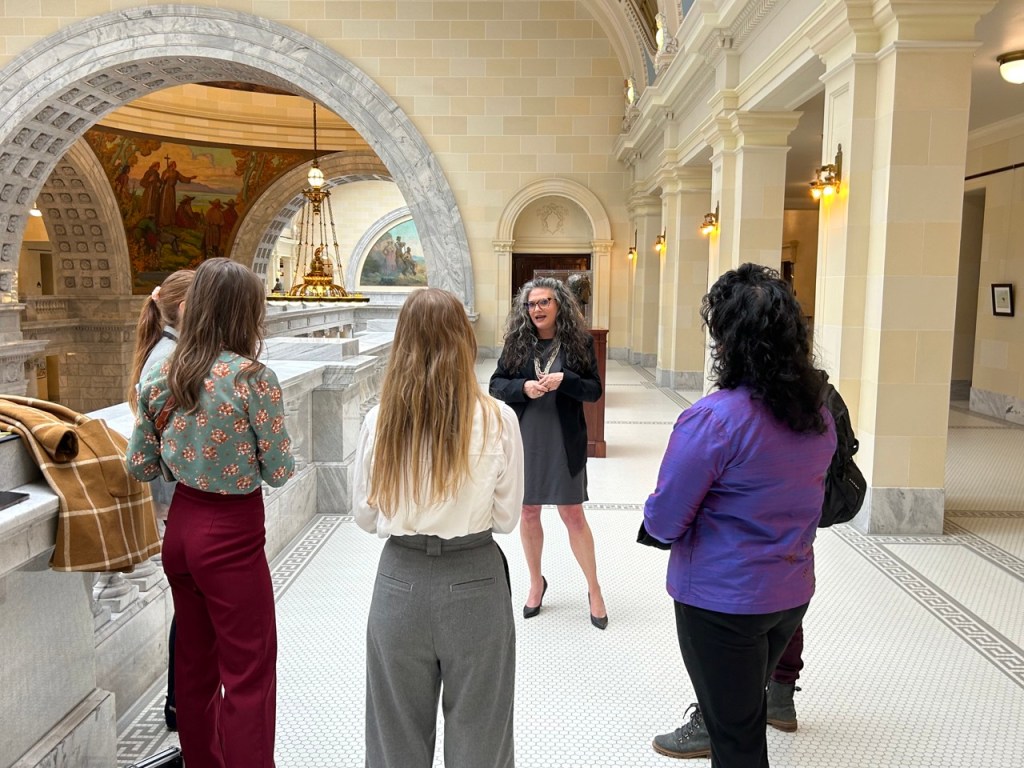In today’s political landscape, the term “lobbyist” often carries a negative connotation, with images of big corporations and private interests wielding undue influence over our lawmakers. The perception of lobbyists as powerful agents of profit-driven agendas has left many feeling disillusioned with the political process. However, there is a growing movement that seeks to redefine what it means to be a lobbyist—one that places community, accountability, and the well-being of people above profit margins. This shift is laying the groundwork for a new era of democracy, where the voices of ordinary individuals like you and me have the potential to shape policy on Capitol Hill.

Redefining lobbying
Every year, we witness an increasing number of individuals stepping forward as community lobbyists, actively advocating for policies that impact their health and quality of life. This grassroots movement aims to bridge the gap between the policies crafted by elected officials and the lived experiences of frontline communities directly affected by those policies. It is an invitation to all of us to join organizations like HEAL Utah and numerous climate leaders during the 2025 legislative session to voice our concerns and drive meaningful change in areas such as climate, air quality, energy, and toxic waste.


The 2025 Legislative Session
As the 2025 Legislative Session approaches, lasting for 45 days from mid-January to early March, our elected officials will gather to address some of our state’s most pressing issues. This period provides ample opportunities for you to engage with your representatives directly, making them aware of why they should support or oppose proposed legislation. To make the most of these opportunities, here are some essential tips for effective communication with your lawmakers during the general session:

Meeting Your Legislator Face-to-Face to Lobby an Issue:

Greetings: Begin by introducing yourself and clearly stating the issue you wish to discuss.
Content: Articulate your position on the specific bill at hand, including its name and provide 2-3 reasons why you support or oppose it, grounded in facts or personal experiences.
Commitment: Ask your legislator directly about their stance on the issue. Can you count on their support or opposition to this bill?
Wrap-up: Respond to the legislator’s feedback, express gratitude for their time, and seek confirmation of any commitments made during the conversation.
Don’t forget
Don’t forget to actively listen to their perspective and offer factual solutions if possible. It’s perfectly acceptable to admit if you don’t have an answer immediately; you can follow up later.
Example: “Hello, My name is [Your Name], I am a constituent of [Your City], and I want to count on your support for [Full bill name, ‘Senate Bill,’ ‘House Bill,’ etc.] [bill name]. With your support of this legislation, we will take significant steps in reducing our air pollution from vehicle emissions and help our growing state’s mobility needs. [Insert short story of why this impacts you!] As someone who actively uses public transportation, I know firsthand how important accessible public transit is for upward mobility and ensuring that we do not take steps backward in our air quality progress. Can I count on your support for [Insert bill name]? Thank you for your time.”
Attending a Hearing and Speaking During Public Comment:
During the Meeting: Listen attentively to the discussions and questions raised.
Speaking During Public Comment: When speaking, introduce yourself, clearly state what you are requesting (vote for or against a bill), focus on 2-3 key points, and express gratitude to the legislators for their time.
Don’t forget:
You’ll likely have a maximum of 2 minutes to speak, so preparation is key. Don’t hesitate to refer to notes if needed.
Example: “Hello, My name is [your name] and I am asking for you to [Support/oppose/amend] [Bill title and number]. [1-2 arguments on why you want them to vote a certain way] Tip: Make your story as personal as possible! Lawmakers need to hear an on-the-ground perspective! [Add one to two facts or data points]. [Support/oppose/amend]. Thank you for your time.”
WRITING TIP! 100 words are approximately 1 minute, so when typing up your comment, try not to go past 200/250 words.
Emailing Your Legislator:
Subject: Craft a clear subject line indicating your request and the bill you are addressing (e.g., “Vote Yes on [Bill name and number] Sponsored by [lawmaker’s name]”).
Intro: Identify yourself and mention your location, especially if you’re a constituent.
Content: Keep your arguments concise, limiting them to 75-100 words.
Don’t forget
Use your own voice and avoid copying and pasting.
Example Subject: “Vote [YES/NO] on [Bill name and number].”
Example Email: “Hello, [Title; Senator, Representative, etc.], my name is [Insert name], and I am a constituent of [Insert city/district]. I am reaching out to you to ask you to support [bill name and number]. [1-2 arguments on why you want them to vote a certain way].
Vote [Yes/against] [insert bill name and number].
Thank you for your time,
-[Your name]
[Contact information].”
You can enhance your lobbying skills, practice with others, and receive assistance from team members when speaking to lawmakers by participating in our free lobbying training program. Learn more about our lobbying program here.
With these strategies, we can collectively work towards a more democratic and accountable political system, where the power of the people is harnessed to drive positive change for our communities.
Understanding the Legislative Session
Explore Utah’s Legislative Session and learn how bills become laws in our simple guide. dive into ‘Navigating Utah’s Legislative Session’.

